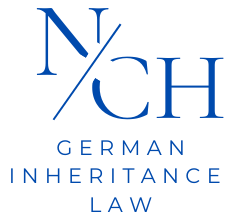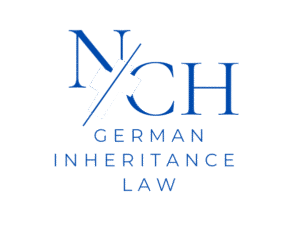Pre- and subsequent heirship (Vor- und Nacherbschaft) – Control wealth across generations
Want to control not only who inherits your estate, but also when and how they receive it? German inheritance law offers a unique tool: the pre- and subsequent heirship (Vor- und Nacherbschaft). This legal structure allows you to separate temporary enjoyment of the estate from ultimate ownership, ensuring that wealth stays within the family and is protected across multiple generations.
The Vor- und Nacherbschaft is one of the most powerful yet misunderstood tools in German succession law. It allows a surviving spouse or relative to benefit from an estate during their lifetime, while ensuring that children or other chosen heirs ultimately inherit. This structure can protect assets from creditors, divorces, and mismanagement. But it comes with strict duties, complex legal consequences, and heavy tax implications. Done right, it safeguards your legacy. Done wrong, it triggers double taxation, liquidity crises, and costly litigation.
- Want to Ensure Your Assets Stay in the Family?
- Typical Motives for Using Pre- and Subsequent Heirship
- Forms of Subsequent Heirship
- Rights and Duties of the Pre-Heir (Vorerbe)
- The “Liberated” Pre-heir
- Rights and Duties of the Subsequent Heir (Nacherbe)
- Compulsory Share (Pflichtteil) and Tactical Renunciation
- The Tax Pitfall – Double Inheritance Tax
- Alternatives to Vor- und Nacherbschaft
- Strategic Considerations for International Estates
- Frequently Asked Questions (FAQs)
- 5 Top Tipps
- Conclusion
Typical Motives for Using Pre- and Subsequent Heirship
The Vor- und Nacherbschaft is most often chosen when a testator wants to balance short-term support with long-term preservation of family wealth. A common motive is to provide financial security for a surviving spouse while ensuring that the estate’s core capital ultimately passes to the children. In other cases, the structure is used as a shield against outside risks: assets can be protected from creditors, divorce-related claims, or even the reckless spending of an heir. For business-owning families, the arrangement is a practical tool to keep operational control with the first generation while guaranteeing that ownership eventually shifts to the next. It is also widely applied in patchwork families, where the testator wishes to prevent assets from flowing to stepchildren or a second spouse’s relatives. Above all, pre- and subsequent heirship ensures that wealth remains within the bloodline and is preserved across generations, even in complex family structures.
Forms of Subsequent Heirship
German law distinguishes between different ways of structuring a Nacherbfolge:
- Fixed-term (befristet): The pre-heirship ends at a predetermined date.
- Conditional (bedingt): The subsequent heirship begins when a certain event occurs (e.g., remarriage of the spouse).
- Death-based (klassisch): The most common form, where the subsequent heir inherits after the pre-heir’s death.
The chosen form must be clearly defined in the will to avoid disputes.
Step 1
Step 2
Get a Legal Roadmap
Step 3
We Handle Everything
Rights and Duties of the Pre-Heir (Vorerbe)
The pre-heir is legally recognized as an heir but with limited powers:
- Must manage the estate prudently and in the interest of subsequent heirs
- Cannot gift assets away or sell them without justification
- Must provide a full inventory and accounting when requested by subsequent heirs
- May not dissolve or distribute the estate (Auseinandersetzungsverbot)
- Must respect the duty of preservation for all estate assets
The “Liberated” Pre-heir
A testator may release the pre-heir from some restrictions. A liberated pre-heir may:
- Sell real estate without prior approval
- Exercise broader discretion in managing assets
- Face fewer accounting obligations
But even a liberated pre-heir cannot make gratuitous gifts from the estate. The duty to protect the substance of the estate always remains.
Rights and Duties of the Subsequent Heir (Nacherbe)
The subsequent heir has a legally protected expectant right from the moment of succession:
- Inherits directly from the original testator, not from the pre-heir
- May challenge unlawful transactions by the pre-heir
- Has the right to receive substitute assets if original estate property was sold or reinvested
- Automatically acquires ownership when the pre-heirship ends (usually upon the pre-heir’s death)
To be enforceable against third parties, especially regarding real estate, the Vor- und Nacherbschaft must be entered into the German land register. Without registration, subsequent heirs risk losing claims against purchasers acting in good faith.
Both pre-heirs and subsequent heirs who are entitled to a compulsory share may reject their restricted position and demand a cash payout instead. This right often creates liquidity problems for estates that are asset-rich but cash-poor, forcing the sale of property or businesses. Effective planning requires modeling these risks and ensuring sufficient liquidity.
The Tax Pitfall – Double Inheritance Tax
German inheritance tax law treats the pre-heir as the initial owner. When the estate passes on to the subsequent heir, inheritance tax is levied again—as if the transfer occurred twice. This creates a double taxation risk, especially in international estates where U.S. estate tax may also apply. Relief provisions and tax-free allowances (Freibeträge) may mitigate but not eliminate the burden. Careful use of spouse and child allowances is essential.
Alternatives to Vor- und Nacherbschaft
While powerful, Vor- und Nacherbschaft is not always the best solution. Alternatives include:
- Berlin Will (Berliner Testament): Spouses name each other as sole heirs, with children as final heirs. Provides flexibility but exposes the estate to Pflichtteil claims.
- Usufruct / Life Estate (Nießbrauch): Ownership passes directly to heirs, while another person retains use rights. Useful for real estate.
- Conditions Precedent or Subsequent: Trigger inheritance based on an event. However, German courts often reclassify these as true Vor- und Nacherbschaft.
Strategic Considerations for International Estates
In U.S.–German cross-border cases, Vor- und Nacherbschaft requires especially careful structuring. U.S. probate courts may interpret the arrangement differently, and U.S. tax authorities may treat the transfer as two separate taxable events. Without proper coordination, heirs face legal uncertainty, liquidity traps, and unnecessary tax burdens. To avoid conflicts, testators should explicitly define applicable law, coordinate U.S. and German tax planning, and ensure wills are bilingual and consistent. Only then can Vor- und Nacherbschaft achieve its intended purpose: protecting family wealth across generations.
Frequently Asked Questions (FAQs)
5 Top Tipps
- Model the tax impact – anticipate and avoid double taxation.
- Plan liquidity reserves – Pflichtteil claims and estate costs require cash.
- Use a notarial will – ambiguity is the enemy of succession planning.
- Coordinate with business succession – secure family companies across generations.
- Always compare alternatives – sometimes usufruct or a Berlin Will achieves the same goals with fewer risks.
Conclusion
Vor- und Nacherbschaft is one of the most sophisticated instruments in German inheritance law. It allows testators to shape wealth transfer across multiple generations, balancing immediate needs with long-term preservation. But it comes with strict duties, high complexity, and serious tax risks. Especially in U.S.–German cross-border estates, professional structuring is essential.
German Attorney Nicola Casper-Hoesl advises clients on designing and defending Vor- und Nacherbschaft structures—strategically, discreetly, and with full awareness of U.S. and German tax and inheritance law.
Nicola is very knowledgeable about German /International Law and listens to her clients’ needs during challenging times in their lives.
She is very kind , responsive and efficient in her email & phone conversations. I was delighted to work with her in solving my niece’s case.
I highly recommend Nicola if someone needs any law advice about Inheritance or German/International law cases.
Nicola helped our family recover a €250k inheritance stuck in German probate—without us ever leaving California. Her team handled everything in 8 months.
Provided expert legal guidance through a very complex inheritance situation involving German banks, courts, and tax authorities. Extremely detailed, diligent, and knowledgeable. I would not have been able to resolve all the legal issues without her help. Very highly recommended!
During a very challenging time both emotionally and logistically, I could always count on Nicola. She expertly guided me through the ins and outs of German inheritance law. It was a pleasure to work with her.
Nicola is an exceptional attorney with extensive knowledge in German inheritance law. Navigating international legal matters can be frustrating and complex, but Nicola made the process smooth and stress-free. Her professionalism along with clear communication were invaluable throughout the entire ordeal.
If you are in need of a knowledgeable, reliable, and supportive lawyer for inheritance matters involving Germany, Nicola is the best choice! I highly recommend her.

